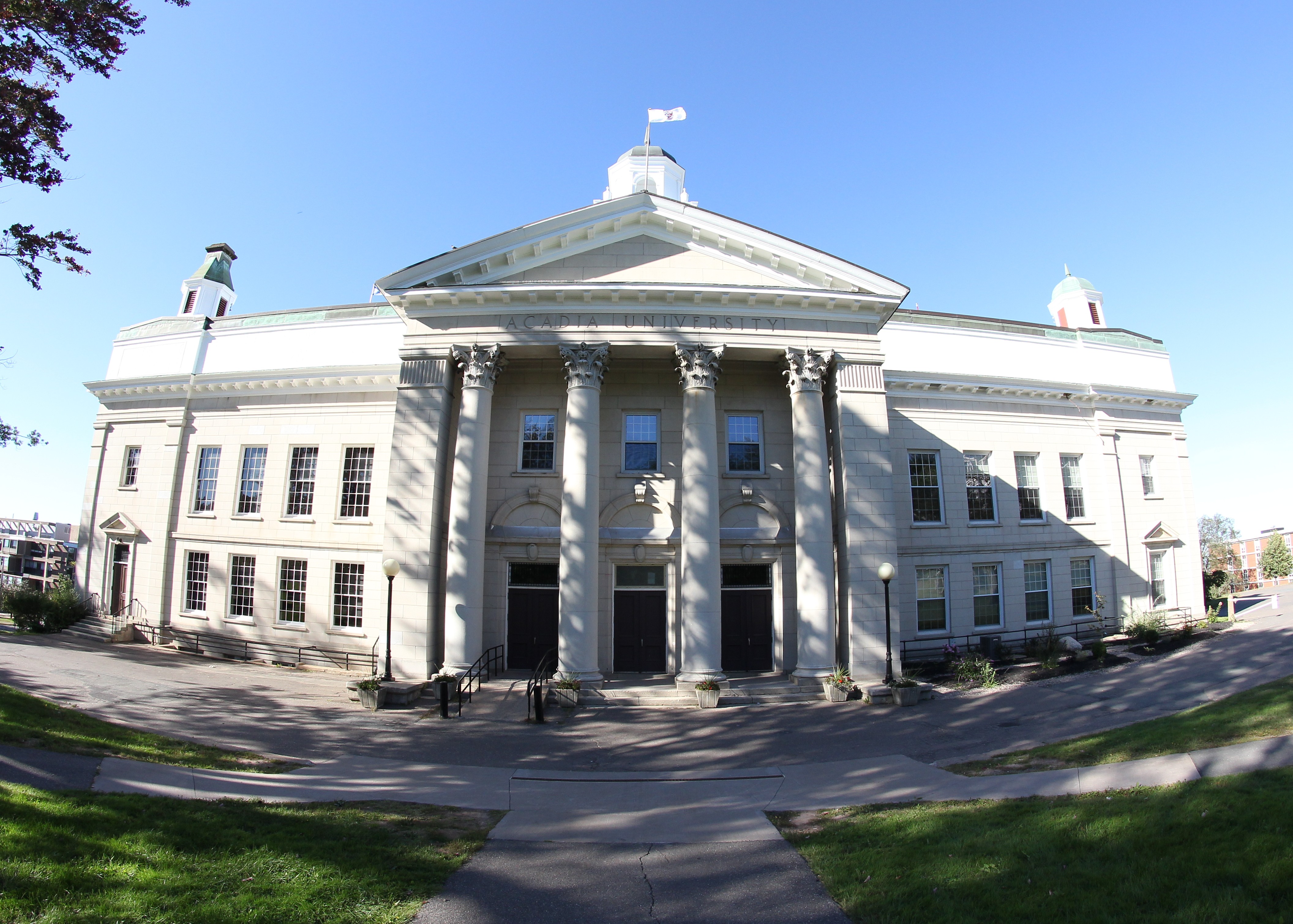The Students’ Representative Council (SRC) is a council composed of a body of students elected by their peers, who are in charge of running the Acadia Students’ Union (ASU). The Council meets weekly on Wednesdays at 5:00 PM in the Beveridge Forum which is located off of the Michener Lounge in the old Students’ Union Building (SUB). Every meeting is open to the public and students are encouraged to attend the meetings to learn more about the decisions being made on their behalf.
Council met this week primarily to ask questions about the ASU Act of Incorporation, which was brought forward by former ASU General Manager Ian Morrison at the last meeting and approve the motion for the UPass Referendum Moratorium. Additionally, council members were appointed to committees, a concerned student came to discuss an issue and announcements were made.
ASU Act of Incorporation
At the last SRC meeting, former ASU General Manager Ian Morrison discussed the existing Act of Incorporation which was put into effect on March 27th, 1967 and the proposed new incorporations act titled the Acadia Students’ Union Act (ASUA). Ian Morrison presented to council last week with the proposed referendum question for the ASUA and another proposed referendum question for constitutional change regarding bylaws. This week ASU lawyer Tom MacEwen was present to answer any concerns council members may have with the referendum questions or ASUA.
Jonah van Driesum, Councillor, raised an issue with the language of the referendum question which does not explicitly say that once the referendum is passed by the student body, any amendments legislation makes afterwards would be in effect. Specifically, van Driesum voiced concerns about potentially being blindsided by legislature in the future. MacEwan explained that the ASUA had already been through legislation a number of times and while he cannot confirm they won’t make changes, it seems very unlikely after the number of drafts that have been made. In response, van Driesum stated that although unlikely, it is worrisome to agree on something when it could very well have amendments placed on it.
VP Student Life Robbie Holmes asked MacEwen if the ASUA puts the ASU in more risk than they are under the current Act of Incorporations to which MacEwen replied explaining that if the union did not want to go with the ASUA they could reincorporate as a society but the ASUA does make the ASU a natural person which increases their rights from the previous act.
The ASUA will be brought forward as New Business next week.
Moratorium on the Upass Referendum
Members of the council arrived at the meeting having viewed the proposed moratoriums for both the UPass referendum and future failed referendums. Councillor van Driesum was one of the members on the Governance Committee that helped to craft the moratoriums. He announced to council that the language of the moratoriums was very specific in order to demonstrate what the moratorium will do, and the open language does not limit the council’s scope.
Sustainability Officer, Max Abu-Laban stated to the council that while a four-year moratorium provides enough time for there to be a new student body to come in and potentially change the outcome of the UPass, four years eliminates the students who were passionate about bringing it up in the first place. In response, van Driesum explained that the moratorium explicitly says that it does not limit anyone from raising the issue at council in the future for discussion. Abu-Laban then pointed out that the moratorium seems intimidating for anyone who would want to raise the issue in the future; however, van Driesum reiterated his initial statement that it is not meant to be intimidating and the open language allows council to make decisions in the most open way possible.
Additionally, van Driesum believes that the time gives the people who are passionate about the UPass, time to rethink and strategize about how to bring it to council in order for it to succeed. President Kyle Vandertoorn echoed Jonah’s beliefs shortly before VP Finance & Operations Brendan MacNeil raised a concern of his own.
MacNeil believes that by allowing time for all current supporters and objectors to leave Acadia the moratorium will not allow anybody time to rethink and strategize and history may be repeated anyways.
Abu-Laban proposed changing the moratorium to three years, however, Vandertoorn pointed out that the past UPass referendum took three years to reach the voting stage and so if it is going to be three years, why even have it in the first place. Van Driesum then informed Abu-Laban and MacNeil that if a bus pass was brought up to council with substantiated changes, such as including an opt-out or a change in fee amount, then it would be considered a new referendum and could go ahead.
This discussion ended with Abu-Laban stating that the moratorium is another structural barrier on student democratic and he feels like it is being traded for student government efficiency. Vandertoorn responded by saying that it is the SRC’s job to advocate for students and it should be a carefully thought out process rather than it being easy for students to impeach or bring a referendum. The SRC is promoting students to have a well thought out plan to lobby for a referendum or impeachment and if the plan is well researched and explored, it should, in theory, go through. The SRC is listening to the student body and right now they have turned down a UPass three times. Van Driesum did state that Abu-Laban’s concerns are why he worked on the moratorium in the first place.
Abu-Laban then motioned to amend the UPass referendum moratorium to be changed from four to three years. By a vote of 8 members against and 4 members for, this amendment was not passed and the moratoriums were presented to council to vote on.
The UPass referendum moratorium is as follows: ‘This motion suspends the research, development, financial support and other resources that have been put towards the proposed and rejected U-Pass for four (4 )years with a mandatory two (2) year review by council. At the review council can continue the moratorium or end the moratorium. The end of the moratorium at any point does not resume the use of resources by the Council or Union towards this proposal unless otherwise dictated by council. This motion does not prevent council from ending the moratorium earlier if it so chooses. The scope of this motion only extends to the resource’s council has at its disposal and does not limit any member of council or the union from raising the issue at council or any other setting.
This motion was approved by council with a vote of 9-3.
The moratorium for future failed referendums is as follows: ‘This motion suspends the research, development, financial support and other resources of council towards any proposed referendums after they have been rejected by students for a period of four (4) years with a mandatory two (2) year review. At the review council can continue the moratorium or end the moratorium. The end of the moratorium at any point does not resume the use of resources by the Council or the Union towards any proposal unless otherwise dictated by council. This motion does not prevent council from ending the moratorium earlier if it so chooses. The scope of this motion only extends to the resources council has at its disposal and does not limit any member of council or the union from raising the issue at council or any other setting.’
This motion was approved with a vote of 8-4.
Question Period
Helen Allen, third-year student and second-year as a Teacher Assistantship (TA) for the Biology Department, approached council with some serious concerns. She described to council a series of events that took place last year where her money from being a TA and her on-campus part-time job had been withheld from her.
Allen provided council with a copy of her TA contract which had no fine print and detailed that she would receive a lump sum of around $540 at the end of each semester. At the end of her first semester last year she had not received payment two weeks later and discussed this with multiple personnel on campus whom she was told may help. Eventually, she was told that her payment went towards her student account which Allen was not made aware of could happen and after balancing her student account the $540 was still nowhere to be seen.
She mentioned there was nowhere in her contract that had anything to do with her student account and yet funds were applied and withheld based on her student account, which did not seem fair. After multiple emails and discussions, Allen was able to get her money back but it took time and the university did not seem to care. Allen provided council with all documents and receipts detailing her experience and mistreatment by the University who did not seem to care whether she received her pay and could pay for her living expenses. Allen mentioned that she is not the only student who experienced this as well.
Holmes and Vandertoorn told Allen they sympathized with her experienced and while they, unfortunately, could not fix or prevent it from happening again, because they are separate from University funds, that did not mean they couldn’t offer her help. They gave her information to contact the ASU lawyer, Tom MacEwen who would be able to give her some assistance.
Appointments and Announcement
Lynn Verheul, Community Relations Officer, was nominated and appointed to the Student Life Committee during the meeting.
Cassidy Churchill and Paige Stewardson, Professional Studies Senator and Arts Senators, are hosting a viewing of ‘Home Alone’ in the KCIC Auditorium on December 1st from 7-9pm. Snacks will be provided.





